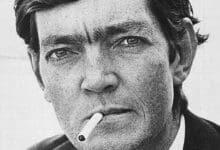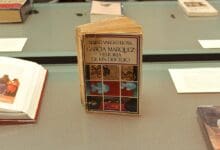Gabriel Garcia Marquez and Mario Vargas Llosa, Two Literary Colossi
Mario Vargas Llosa, born on March 28, 1936 in Arequipa, Peru and Gabriel García Márquez, born on March 6, 1927 in Aracataca, Colombia and died on April 17, 2014 in Mexico City, are two of the most important writers in Latin American literature of the 20th century.
Both were, in the sixties, media stars and masters of words, representing the most visible face of the Latin American Boom, exhibiting their literary professionalism, their commitment to the left and their sympathy for the Cuban revolution.
Politics
Gabo (Gabriel García Márquez) and Fidel Castro shared a close and complex friendship, although the writer criticized many of Castro’s policies, which led him, over time, to put distance in their relationship. Long before, Vargas Llosa also distanced himself politically, disagreeing with the ideological position and the friendship between García Márquez and Castro.
Mario Vargas Llosa founded the Movimiento Libertad in 1987, a Peruvian political party in the political center right, which tried to lead him to the presidency of Peru in the 1990 elections, losing to the extreme right candidate Alberto Fujimori.
It is undeniable that both writers were interested in the social and political reality of Latin America, but from very different perspectives.
García Márquez was emotional and intuitive, exploring imagination and magical realism, drawing on the oral and popular tradition of his homeland, while Vargas Llosa was more analytical and rational, inspired by authors such as Flaubert, Joyce or Faulkner. His texts are more rigid and complex.
Both were masters of the language and narrative technique, capable of creating their own fascinating worlds. Their novels and short stories covered all aspects of human life.
Literature
Gabriel García Márquez is known for his novels such as “One Hundred Years of Solitude” (1967), “Love in the Time of Cholera” (1985) and “Chronicle of a Death Foretold” (1981), among many others. He also wrote short stories such as “Big Mama’s Funerals” (1962) and “Twelve Pilgrim Tales” (1992), as well as non-fiction works such as “Story of a Castaway” (1970) and “News of a Kidnapping” (1996). ).
Mario Vargas Llosa stands out for his fiction, such as “The City and the Dogs” (1962), “Conversation in the Cathedral” (1969) and “Aunt Julia and the Writer” (1977), among many others. He has also dedicated efforts to literary criticism, writing essays on admired authors such as Gustav Flaubert, Víctor Hugo and Juan Carlos Onetti. Even his doctoral thesis, “The Story of a Deicide”, was based on “One Hundred Years of Solitude” by Gabriel García Márquez.
Politics and Literature
Politics is present in all the work of Gabriel García Márquez. Social conflicts that are a fundamental element of his creation, showing in his narrative as a conflicting vision between liberals and conservatives. The best-known example is his novel “The Autumn of the Patriarch ”, published in 1975, where he scrutinizes the life and miracles of a Latin American dictator.
Mario Vargas Llosa has reflected his political position in his novel “Tiempos recios”, where he recounts with overtones of fiction, a series of conspiracies that brought Carlos Castillo Armas to power in Guatemala, after a military coup orchestrated by the CIA to overthrow elected President Jacobo Árbenz, who tried to implement reforms to force the powerful United Fruit Company to pay taxes and guarantee decent wages. The novel reveals the existing conflict between political power and Latin American dictatorships.




